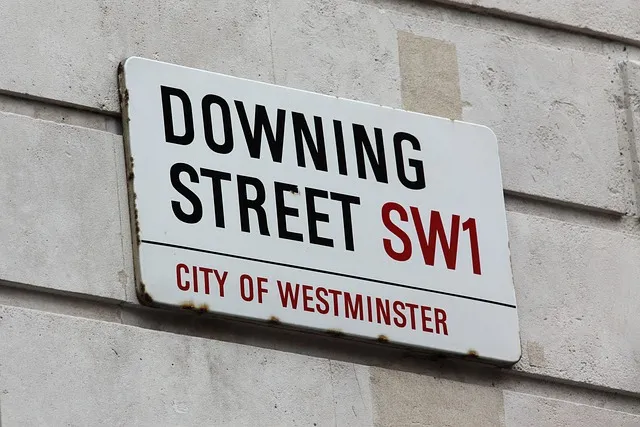
Political parties are integral to the legislative process in democracies. They are the primary vehicles through which citizens organize and express their political identities and preferences, and they shape the legislative agenda and the outcomes of legislative debates. Political parties provide an important link between the public and the legislature, allowing for the representation of diverse interests in the legislative process.
Parties also provide a forum for debate and deliberation among legislators, and facilitate the formation of coalitions and compromise. As such, parties play an essential role in ensuring that the legislative process is responsive to the public and representative of the interests of the public.
“The Influence of Political Parties on the Legislative Process”
Political parties play an integral role in the legislative process as they are the driving force behind the legislation that is proposed and passed. In most countries, political parties are organized groups that are designed to influence the government by putting forth candidates for office and policy initiatives. Political parties are responsible for forming coalitions and negotiating compromises that help to create legislation that is acceptable to the majority of their constituents.
The influence of political parties on the legislative process is significant as it helps to shape the policies that are ultimately enacted into law. Political parties are sometimes able to propose legislation that is more favorable to their constituents than legislation that is proposed by other parties. By forming coalitions and negotiating compromises, political parties are able to pass legislation that is more beneficial to their constituents than legislation that is proposed by a single party.

Political parties are also able to gain influence in the legislative process by raising funds for their campaigns and generating public support. By raising money for their campaigns, political parties are able to spread their message and increase their influence in the legislative process. Similarly, by generating public support for their policies, political parties are able to increase their influence in the legislative process.
In conclusion, political parties play an important role in the legislative process as they are able to influence the policies that are ultimately enacted into law. By forming coalitions and negotiating compromises, political parties are able to pass legislation that is more beneficial to their constituents than legislation that is proposed by a single party. Furthermore, political parties are able to gain influence in the legislative process by raising funds for their campaigns and generating public support.
“How Political Parties Help Shape the Legislative Agenda”
Political parties are essential components of the legislative process. They help to shape the legislative agenda by providing structure and organization to the process. Through their members and leadership, political parties create a platform for their views and determine which bills are prioritized and debated.
Political parties provide a framework for the legislative process. They organize members into caucuses, allowing for the formation of a unified body that can act in concert to advance a particular agenda. Moreover, the party leadership is able to set the agenda and prioritize certain bills over others. This ensures that the legislative process is not bogged down by every individual’s competing views and interests.
In addition, political parties play a key role in determining how bills move through the legislative process. Through their leadership, political parties can help to craft legislation and determine when and how it should be debated and voted upon. This helps to ensure that bills are not rushed through the process without careful consideration and debate.
Finally, political parties act as an important conduit between the general public and the legislature. They can provide a voice for those who may otherwise go unheard and ensure that the public’s needs and interests are represented. They can also help to mobilize public opinion, which can in turn influence the legislative agenda.

Political parties provide structure, organization, and leadership to the legislative process. Through their members and leadership, political parties help to craft and prioritize the legislative agenda and provide a conduit between the public and the legislature. In doing so, they play an important role in shaping the legislative process.
“Exploring the Role of Political Parties in the Creation of Laws”
Political parties play a major role in the creation of laws in the United States. From the formation of political parties to the role of Congress and the president, political parties are an integral part of the lawmaking process.
To begin with, the formation of political parties is essential to the lawmaking process. Each party is responsible for developing its own platform and advocating for its own policies. This helps to shape the political debate, which then influences the laws that are made.
Once the political parties have been established, Congress and the president are responsible for passing laws. Congress is made up of two houses, the House of Representatives and the Senate, and each house is controlled by one of the two major political parties. This means that any legislation must usually pass through both houses before it is signed into law by the president.
The president also plays an important role in the lawmaking process. The president can veto bills that are passed by Congress, which helps to ensure that only laws that have been thoroughly debated and agreed upon by all parties are enacted. Furthermore, the president can introduce legislation into Congress, which can then be debated and amended as needed.
Finally, political parties help to ensure accountability in all aspects of the lawmaking process. Political parties are responsible for holding their members accountable when it comes to voting on specific legislation. This helps to ensure that all laws passed are done so in a timely and effective manner.

Political parties play a significant role in the creation of laws in the United States. From the formation of political parties to the role of Congress and the president, political parties are an integral part of the lawmaking process. Without political parties, the lawmaking process would be significantly less effective and efficient.
“The Role of Political Parties in Driving Public Policy”
The role of political parties in driving public policy has been a subject of debate for many years. It is widely accepted that political parties can have a major influence on the direction of policy initiatives, as they are often the primary agents of change in government. Political parties can provide a platform for the promotion and implementation of policy initiatives, as well as a forum for discussion and debate on proposed policy changes.
The ability of political parties to influence policy is rooted in the structure of the political system. In a democratic system, political parties are the primary vehicle for the expression of public opinion, and thus are a major factor in determining the direction of public policy. Political parties can also be a powerful force in policymaking by providing a platform for the formulation of policy ideas and the mobilization of public opinion behind these ideas. The power of political parties is even greater if they are able to gain control of the government.
With control of the government, political parties can use their influence to enact legislation and regulations that are in line with their political agenda. Political parties also play an important role in influencing the outcome of elections. By mobilizing their supporters and running effective campaigns, political parties can sway public opinion in favor of their preferred candidates and policies.
In addition, political parties can use their organizational resources to influence the media, which in turn can shape public opinion and help to sway the outcome of elections. As such, political parties are an important force in driving public policy and shaping the direction of the government.
“How Political Parties Shape the Politics of Legislation”

Political parties are powerful forces that shape the politics of legislation. They are responsible for determining the composition of legislative bodies, the agenda of issues addressed, and the outcomes of the legislative process.
The composition of a legislative body is critical to the politics of legislation. The majority party has the power to determine which bills get to the floor and which ones don’t. This has a substantial impact on the success of proposed legislation, as the majority party can decide whether or not a bill even has the chance to be voted on.
Parties also have a significant influence on the agenda of legislative issues. They determine which issues are important, which ones will be discussed, and how much time will be allocated to them. This allows parties to focus on issues that align with their political ideology and marginalize those that don’t.
Finally, political parties have a direct effect on the outcomes of the legislative process. Parties can unite their members to vote in favor of a certain bill or against it, thus influencing the outcome of the vote. Parties can also use their influence to negotiate and form coalitions with other parties in order to pass legislation.
In summary, political parties have an enormous impact on the politics of legislation. They determine the composition of legislative bodies, the agenda of issues addressed, and the outcomes of the legislative process. As such, it is important to understand how political parties shape the politics of legislation in order to effectively participate in the legislative process.
Political parties play an important role in the legislative process. They provide a means for people to organize around shared interests, values, and beliefs. Through party platforms, members are able to influence policy, shape public opinion, and guide the direction of their state or national government. Political parties provide a structure and an opportunity for citizens to become engaged in the legislative process and to participate in the decision-making process. As such, political parties are an essential part of the legislative process and play an important role in maintaining a healthy democracy.

Leave a Reply